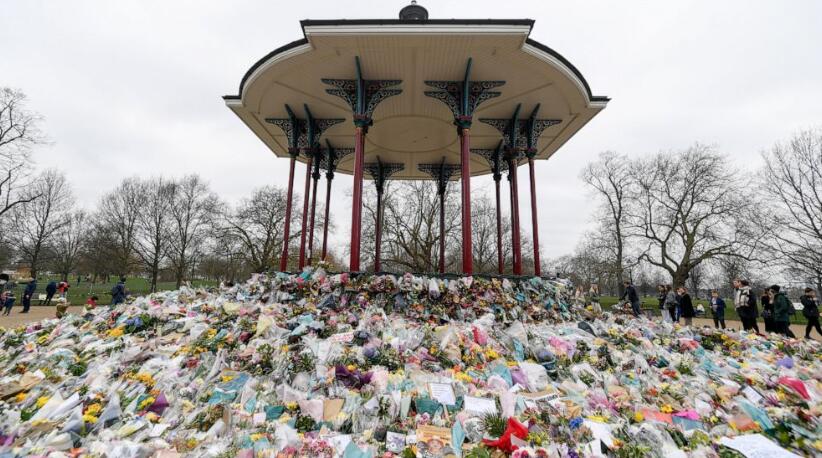An independent review says London police have lost the confidence of the public because of deep-seated racism, misogyny and homophobia
LONDON — London police have lost the confidence of the public because of deep-seated racism, misogyny and homophobia, according to an independent review commissioned after a young woman was raped and killed by a serving officer.
The Metropolitan Police Service, which has more than 34,000 officers and is Britain’s biggest police force, must “change itself” or risk being broken up, the report published Tuesday said.
“It is not our job as the public to keep ourselves safe from the police. It is the police’s job to keep us safe as the public,’’ said Louise Casey, an expert on victims’ rights and social welfare who led the review. “Far too many Londoners have now lost faith in policing to do that.”
The findings ratchet up the pressure for a major overhaul of the Metropolitan Police after a series of scandals involving its treatment of women and minorities. In a preliminary report released in October, Casey found that the department had failed to properly vet and train officers, and had allowed officers to remain on the job even after they were accused of domestic abuse or racial harassment.
Part of the problem is that there is a culture of denial in the department, with leaders adopting a “we know best” attitude that leads them to dismiss outside critics, the review found. Funding cuts, along with the decision to close local police stations and effectively end community policing, also contribute to the situation.
Underlying all of this is the way the force is managed, not its size, the inquiry found.
“The Met is run as a set of disconnected and competing moving parts, lacking clear systems, goals or strategies,” the report said. “It runs on a series of uncoordinated and short-lived initiatives, long on activity but short on action.”
The Casey review was commissioned after a serving officer raped and killed Sarah Everard, a young marketing executive as she walked home from a friend’s house in March 2021, prompting a national outcry as women shared their experiences of being threatened or attacked when walking alone.
When hundreds gathered at Clapham Common in south London to draw attention to the violence women face every day, police broke up the rally, saying it was a violation of COVID-19 lockdown rules. Video posted on social media showed male officers grabbing hold of several women and pulling them away in handcuffs to screams and shouts from onlookers.
But the Everard case was only one in a series of recent scandals at the Metropolitan Police, known as the Met.
In December 2021, two officers were jailed for taking and sharing photos of the bodies of two Black women after they were dispatched to guard the scene where the women had been slain. Another officer was later sentenced to life in prison after pleading guilty to 48 rapes and a series of other serious crimes committed over a 17-year period.
The Met was also accused of homophobia over its failure to stop serial killer Stephen Port, who murdered four young men over a 15-month period in 2014 and 2015.
Detectives didn’t initially link the victims, all gay men in their 20s whose bodies were found near Port’s home in east London. They only began investigating the deaths as potential homicides after the family of the final victim pressed for action.
Casey’s review found that the department hasn’t treated violence against women and girls as seriously as other forms of violence.
The 363-page report also painted an alarming picture of how crimes against women and children are investigated due to a shortage of funding and a lack of specialized officers trained to handle these cases.
Officers investigating these crimes are forced to store rape samples in “over-stuffed, dilapidated or broken fridges and freezers,” because they don’t have access to fast-track forensic services, investigators found.
A lunchbox in one of these refrigerators contaminated the evidence. Another appliance broke down last summer, meaning the evidence was damaged and couldn’t be used in court.
“The de-prioritization and de-specialization of public protection has put women and children at greater risk than necessary,” the report said. “Despite some outstanding experienced senior officers, an overworked inexperienced workforce polices child protection, rape and serious sexual offences.”
But the problems extend beyond the treatment of women and girls.
Twenty-four years after another inquiry found that institutional racism was a key factor in why the Met failed to investigate the killing of Black teenager Stephen Lawrence, Casey highlighted the fact that the department is still disproportionately white and male.
About 17% of London police officers are Black, Asian or mixed race, compared with about 10% a decade ago, according to the latest department statistics. Women account for almost 31% of police officers, up from almost 25% in 2013.
Some 40% of London’s population is Black, Asian or mixed race, according to the 2021 census.
The report found widespread bullying in the department, with one in five staff members that have protected characteristics — such as race, sexuality or disability — being victims.
“Female officers and staff routinely face sexism and misogyny,” the report said.
